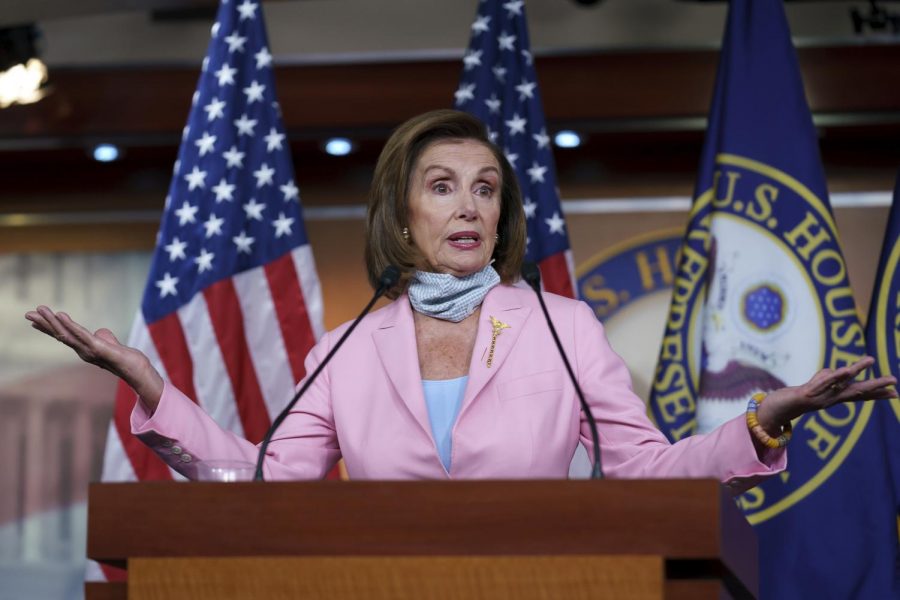$3.5 Trillion Budget Plan is a Win for Americans, Disappointment for Students
Nancy Pelosi addresses a crowd during a press conference.
September 3, 2021
The $3.5 trillion budget plan passed by the House carries a hefty price tag.
Concerning healthcare, education, paid leave and the environment, the budget is an attempt by House Democrats to put Biden’s agenda into action. According to the Wall Street Journal, it was passed by the House in a 220-212 vote on Aug. 24.
The budget was passed without any Republican votes, casting doubt on President Joe Biden’s campaign claims of “reaching across the aisle” and fostering bipartisanship. Proponents of the budget even struggled to get their own party to vote for it.
According to the New York Times, moderate Democrats wanted a $1 trillion bipartisan infrastructure bill to be passed before the new budget plan. It was previously combined with the $3.5 trillion budget, but they have been separated.
In order to get moderates to support the $3.5 trillion budget, progressive Democrats are holding out on voting for the infrastructure plan. This back and forth between the two perspectives of the party shows the type of dysfunction Democrats may face for the next few years.
Though the amount of money is shocking and divisive, the budget addresses items that are important and helpful for the country. My main concern is whether the bill should have addressed an issue facing myself and other EHS students.
The democratic party has been promising widespread cancelation of student loan debt and reductions in college fees, yet that is nowhere to be found in this plan. Two free years of community college are a proposed part of the budget, but I think this is not a solution to the problem of college costs.
The idea behind free community college is that it gives students the opportunity to transfer credit hours to a 4-year institution after completion. This logic is inherently flawed. After taking multiple dual-credit courses through Lewis and Clark Community College, I know that not all 4-year universities give credit for these hours.
Additionally, the average tuition cost for community colleges from 2020-2021 was $3,700, according to College Board. However, the net cost of tuition after scholarships and grants were considered was -$220. Why eliminate the tuition of community college when it is already the most affordable secondary education option available?
Instead, the budget should have focused on reducing the cost of 4-year institutions. I think the goal should be making 4-year universities accessible, rather than directing low-income students to community college first. Not only does this create an even larger gap between those who can afford 4-year universities and those who can’t, but it reduces the opportunities available to lower-income students.
I think giving two free years of community college is President Biden’s method of pretending like he’s addressing college costs in America without doing much to fix the problem at all.












